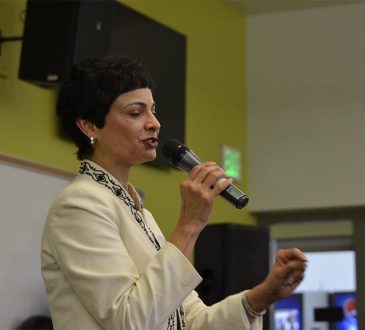Coronavirus & Gratitude

Over the past several weeks, I’ve spoken to CEO mastermind groups in Atlanta, Denver, Toronto, and Glasgow, Scotland, all from my own home in southern California. The majority of these CEOs are being forced to lead teams where its members are working from home. If they had their druthers, it’s certainly not something most of them would have chosen. In the scheme of things, however, realizing that many businesses don’t have the luxury of going virtual, they are grateful they can press on.
When it comes to feeling grateful, we’re just getting started. During the 2008 financial crisis, working from home in the manner we are doing so today would not have been possible. Back then, Zoom, Slack and Microsoft Teams, which are among the “go-to” tools for today’s remote worker didn’t exist. It’s also important to recognize that because these products have been on the scene for a number of years (some longer than others), leaders and employees had just enough runway to learn how to leverage them effectively enough so that they can all keep the trains running during this crisis. My guess is there are countless people who couldn’t even spell Zoom six months ago; today, they know the ins and outs of the platform as if they were born with it. When I speak to groups about confidentiality, I remind them, “What happens in the Zoom stays in the Zoom.” It’s quickly become a whole new world.
These CEOs are also grateful for how their people are responding to remote work. Not only have they been able to adapt to new technologies, but by most accounts, productivity is up and their teams are more collaborative than ever. This phenomenon is taking place despite the fact that employees are managing everything from worrying about their elderly parents to homeschooling their kids. One CEO told me that he can measure productivity because his system records the lines of code his employees are writing every day, and since shelter in place took hold, productivity is up 20%. While other accounts of increased productivity I’ve heard about are more anecdotal, the upshot is that it’s inspired a new level of trust in the workforce.
By the way, the CEO who was sharing his delight with a 20% increase in productivity, immediately pivoted to his big concern: employee burnout. This thought led to a larger conversation about encouraging employees to take recess during the day (just like their kids), telling them to play with their children, walk their dog, or just step away from their work to get a mental break. Another CEO chimed-in to say that she is doing everything possible to be transparent about her day, especially when she takes time to walk the dog or practice yoga. She believes sharing that information lets her team know it’s okay for them to take time away and pace themselves as well.
Executive Growth Alliance (EGA) Founder, Jennifer Vessels has been speaking to her organization’s members in the US, Europe, South America and South Africa. She told me that while she’s hearing the same types of stories from her members (largely mid-level executives at large companies), she’s also heard that with the usual business activities slowing down, employees are turning their attention to innovation and, as a result, are accelerating development of new products and services to meet the needs of the future. Jennifer also mentioned that this innovation has extended to how employees are combating the burnout factor covered earlier, including virtual group exercise time, Friday trivia contests, video chats with the CEO, and of course the ever-popular Zoom Happy Hour.
For my money, I believe one reason collaboration has improved is because rather go to a common workplace, where everyone puts on their employee hat; we virtually invite people into our homes where our employee hat stays in the closet, and we engage each other as human beings. If we eschew virtual backgrounds (which I highly recommend), our co-workers get a slice of our respective worlds – a dog jumping in our lap, the 8-year-old who stops by our desk during a video call because they need a break from their work, too. Or even the pictures behind us on the wall that offer a glimpse of what we care about. The more human we can be, the more cooperative we are.
In a recent webinar sponsored by Vistage Worldwide, Harvard Business School Professor Amy Edmonson noted that when it comes to this crisis, we’re not all in the same boat. It’s more accurate to say, we’re in different boats, but we are in the same storm. Depending on their business, the pain can vary from one CEO experiencing a terrible inconvenience to another holding on for dear life in fear he’ll fall out of the boat.
In closing, the hardest part of speaking to CEO groups lately can be managing the wide range of distress levels among the members – distress that transcends business. Eight weeks ago, I didn’t run into anyone who had any direct contact with coronavirus. Today, I can’t speak to a group without one or more of the members not having been directly affected or infected by the virus. The statistics of two-months ago have gotten all too real for far too many people.
That said, if you’ve avoided such a fate, at least for now, be grateful and careful. Stay safe.
Written by Leo Bottary. Have you read? Moldova CIP: Moldova Citizenship By Investment Program, Turkey CIP: Turkey Citizenship By Investment Program, Portugal Golden Visa Program, Dominica Citizenship by Investment Programme
Add CEOWORLD magazine to your Google News feed.
Follow CEOWORLD magazine headlines on: Google News, LinkedIn, Twitter, and Facebook.
This report/news/ranking/statistics has been prepared only for general guidance on matters of interest and does not constitute professional advice. You should not act upon the information contained in this publication without obtaining specific professional advice. No representation or warranty (express or implied) is given as to the accuracy or completeness of the information contained in this publication, and, to the extent permitted by law, CEOWORLD magazine does not accept or assume any liability, responsibility or duty of care for any consequences of you or anyone else acting, or refraining to act, in reliance on the information contained in this publication or for any decision based on it.
Copyright 2024 The CEOWORLD magazine. All rights reserved. This material (and any extract from it) must not be copied, redistributed or placed on any website, without CEOWORLD magazine' prior written consent. For media queries, please contact: info@ceoworld.biz
SUBSCRIBE NEWSLETTER








